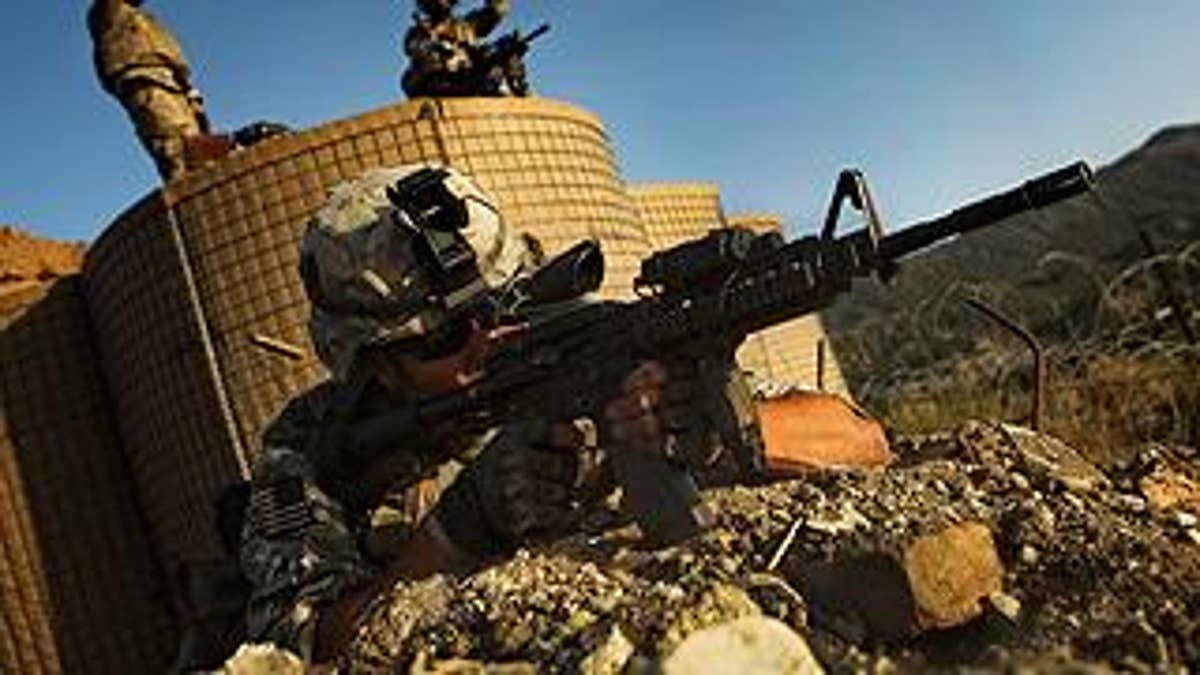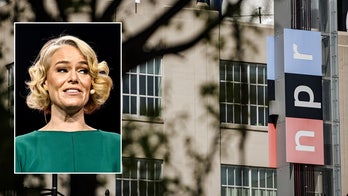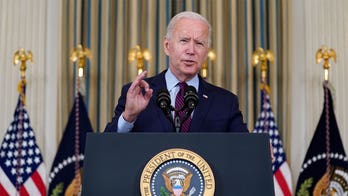
President Obama's reluctant strategy in Afghanistan seems to be breeding reluctant allies, as several NATO nations have hedged their commitment to the war until the Obama administration makes a decision on troop levels.
U.S. Defense Secretary Robert Gates and his top commander in Afghanistan, Gen. Stanley McChrystal, pressed NATO ministers Friday to send more troops and civilian aid to the war.
Gates said Friday he was "heartened" by the allies' commitment to the 8-year-old war, even as the Obama administration mulls whether to order tens of thousands more U.S. troops to the fight, as recommended by McChrystal.
But Gates said the president's decision is still two or three weeks away, signaling that the administration could be waiting until the November runoff election between Afghan President Hamid Karzai and challenger Abdullah Abdullah. Now other allies are following that lead.
Dutch Defense Minister Eimert Van Middelkoop said the Netherlands, with 2,160 troops in Afghanistan, is awaiting the final election results "because the legitimacy of the Afghan government is key," as well as a decision by the Obama administration.
"I think most countries are waiting for the American decisions," van Middelkoop said at a meeting in Bratislava, Slovakia, of the defense ministers of the 28 NATO countries.
NATO countries have committed an estimated 68,000 troops to Afghanistan.
Danish Defense Minister Soeren Gade said allies won't increase troop levels until they're assured the government in Kabul is committed to the NATO goals.
"I think whoever is going to send more troops to Afghanistan will put up some conditions," said Gade, whose country has 690 soldiers in Afghanistan.
"They need to see the new Afghan president and say: 'If we send more troops to your country, you have to deal with this, this and this.' We have to make sure the new government in Afghanistan are committed to their job before we send any more troops to Afghanistan."
Germany's defense minister, Franz Josef Jung, said he too doesn't expect his country to increase its troop numbers in Afghanistan when the soldiers' mandate from the German parliament comes up for renewal in December. The existing mandate allows the deployment of a maximum of 4,500 soldiers, and Germany currently has just over 4,200 troops in Afghanistan.
NATO's apparent reluctance to commit more troops before Obama defines the U.S. strategy -- or, the results of the runoff election -- came on the heels of Australia's decision not to keep troops in Afghanistan "a day longer than is necessary."
Australia's defense minister, John Faulkner, testifying Wednesday before a government committee before flying to Slovakia for the NATO summit, said he had no immediate plans to draw down his country's troop strength there. Australia has about 1,550 troops in Afghanistan -- the largest contribution of any country outside NATO.
But, Faulkner said Australian troops were focused on training an Afghan National Army brigade in Uruzgan province "so they can take the responsibility for security in the province," Faulkner said. "That objective, that focus, won't change."
"I don't want to see Australian troops in Afghanistan a day longer than is necessary," Faulkner said.
He did not indicate whether he was considering a recommendation by McChrystal that NATO allies contribute thousands of troops to the Afghan effort.
Gates said he will prod NATO for more economic and security aid to Afghanistan while trying to sidestep the simmering international debate over sending more troops to the fight.
The Associated Press contributed to this report.




